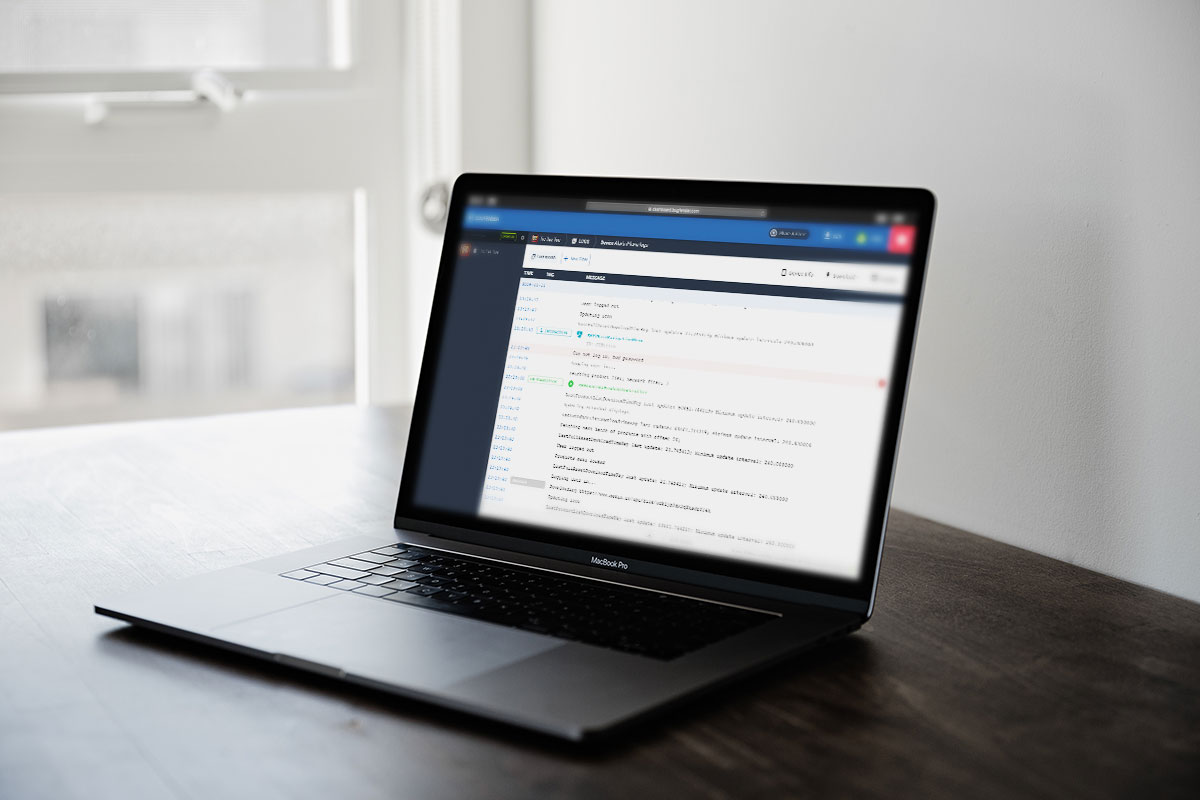
6 Minutes
How to Write Bug Free Apps
Fix Bugs Faster! Log Collection Made Easy
Software is not just about handling mathematical work anymore. Robots are used in manufacturing lines in many industries and every task they perform has millions of lines of code. When software does not work like it is expected, people die. This is not just an assumption but there are numerous incidents where a malfunctioned robot killed a fellow human worker in the assembly line.
Although iOS and Android apps do not have such danger, we are not talking about distant future where mobile apps would be more powerful and would control many aspects of our lives. Interestingly, when it comes to software and app development, how you start does not matter but how you end up matters the most. As a developer, you must know, understand and accept that it is almost impossible to write bug-free code in the first attempt.
Developers must focus on a functional product and time for refinement comes later. Every mobile app, doesn’t matter if it’s iOS or Android, starts with a buggy version. Let’s talk about the challenges which influence the app development process.
- Expecting to write a big code without any bug in the first attempt it an unrealistic expectation that could slow down the entire development process. Instead, developers should focus on the core functionality of the app.
- A good apps or software do what its users expect it to do. Make sure you have detailed documentation of every feature before you start developing the app.
- Unit testing is the part of programmer’s job and he should do that regularly. Unfortunately, many developers don’t even know what it is and how to do it. Unit testing refers to testing of each module of the app individually and the purpose of unit testing is to assess whether those modules are ready to work together or not.
- Individual developers and even companies must consider the cost of entire development process beforehand and decide what is most important to them – an 80% reliable mobile app which is inexpensive or a 100% stable and reliable mobile app which is expensive.
- Theoretically, a human can build bug-free app but practically it is not economically feasible because of the resources it needs. It all comes down to the debugging phase where latest tools like Bugfender can provide value.
[random-ad]
Buggy applications and software are totally unacceptable in the current marketplace they not only put drastic impact on the overall system stability but also make the system vulnerable. Reducing bugs in your mobile app leads to better, more stable, more reliable, more secure and faster apps. As mentioned above, developing bug-free app could be a myth but adopting following practical tips will give you a much more realistic approach.
Pair Programming
Pair Programming is one of the most underrated techniques that every developer must use regularly. Although this particular technique is not for everyone developers can benefit from it during complicated programming projects. The reason behind its effectiveness is pretty simple.
When two programmers work on a project simultaneously, that not only increases the productivity but also the quality of code. Interestingly, getting your code reviewed by another developer is not similar to review it yourself. It also helps in the debug phase, it’s easier to spot bugs when two developers work on the same problem and both know the code.
Beta Testing
Although beta testing has some limitations but it could be an effective and resource efficient strategy to increase the quality and stability of your mobile app. Encouraging users to provide feedback is a must as the effectiveness of beta version depends on this factor alone.
Fortunately, there are better ways to perform beta testing without relying on solely customers’ feedback. Tools like Bugfender allow developers to see all logs and events in real-time so they can observe the behavior of apps on different devices remotely, which allows them to debug problem faster.
Advanced Compiler Options
Some development tools come with advanced debug options and features. These platforms allow developers enable features like memory corruption checking, range checking and overflow checking. Developers disable these features because they make “unnecessary” suggestions. These suggestions do not influence the functionality of app but increase the overall quality of code.
By eliminating innocent bugs and mistakes, developers can improve their development skills that could help in reducing the number of serious bugs that could compromise the security, stability and performance of the app.
Use Proven Existing Code Where Possible
Of course, you should write the main feature and core functionality of your app yourself but you can use existing code for other parts. Existing proven code allows you to add generic features in your mobile app without spending too many resources on things that do not define your app.
You can either use 3rd party libraries, internal libraries or even open-source solutions to solve this problem. By using proven code in your app, you would be able to reduce the possible number of error dramatically. One example is the reporting engine; it would take thousands of man-hour to build a working and stable reporting engine but you can use existing code in minutes.
Written Specification
The majority of bugs are caused by badly designed and integrated features, interfaces and even undocumented specifications. Experienced developers and designers complete the documentation with all required features and implementation before starting the development process. However writing the documentation is just one step.
Developers should update and maintain that throughout the lifespan of their mobile app in order to keep track of all the changes and their outcome. There are many specialized semi-automatic tools available that can help in this regard.
Testers
No doubt testers are as important as the developers because they play a major role in achieving the level of quality developers want to see in their mobile apps. Many organizations hire lots of testers and sometimes they have one tester per developer policy. Testing an app for every possible bug is not only a time consuming but can also be a frustrating task, but it’s the best way to have bug-free apps.
Bugfender
Bugfender is a revolutionary tool that allows developers to detect bugs before their customers do. By allowing developers to see the entire log, activities and events on the target device, developers can see abnormal behavior of their apps on other devices remotely.
Expect The Unexpected!
Debug Faster With Bugfender



